Learn how your workout clothing choices can impact your health, the planet, and the well-being of others.
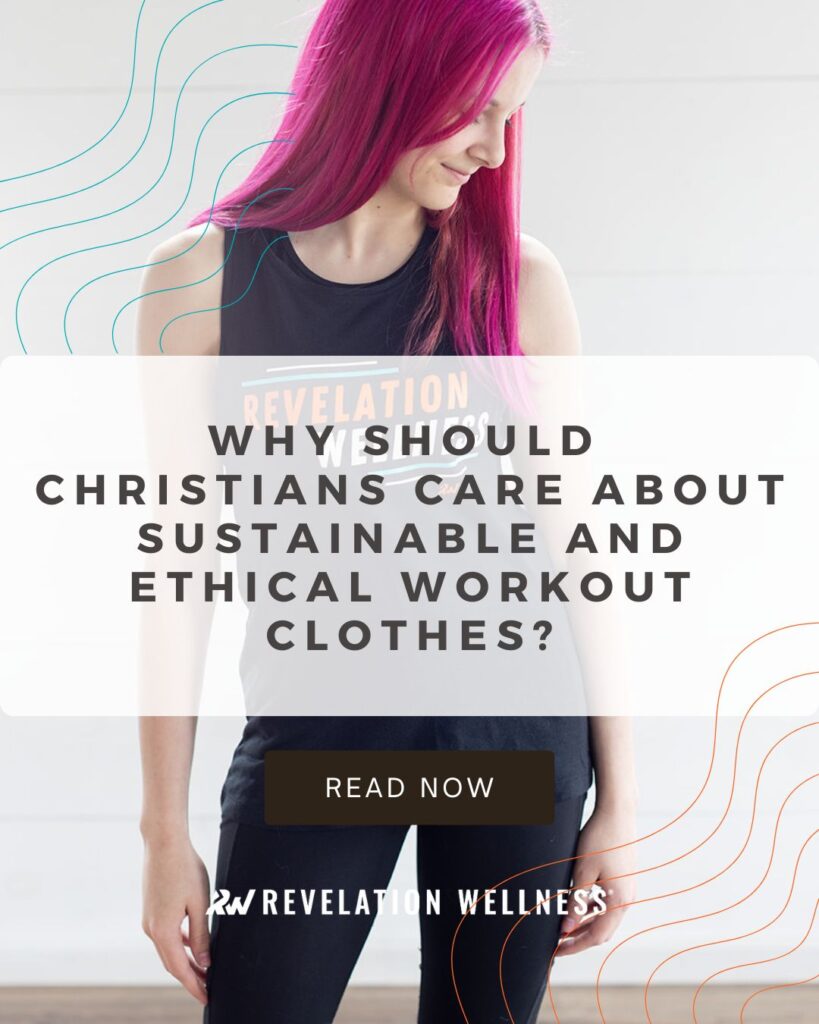
When it comes to health and wellness, many of us would agree that we can honor God by caring about what we put in our bodies.
In his letter to the church of Corinth, Paul gives three reasons why their bodies matter: First, the Holy Spirit dwells in them. Second, they belong to God. And third, we are meant to glorify God in our bodies.
Even if you’re not a follower of Jesus, it’s common knowledge nowadays that less processed, whole, “clean” food is better for your overall physical health.
But what about what we put on our bodies? Is it possible for clothes to be bad for our health? Can loving God with our whole selves include our clothing choices?
I would guess that we have all seen a product labeled as “eco-friendly” or some kind of eco-related term. Climate Change has been a politically charged topic for many years. The ‘Going Green’ theme is a national initiative in the U.S. promoting education three months out of the year. It is trendy to be mindful of the earth’s resources.
Regardless of where you stand on the issue, let’s consider environmental care and clothes manufacturing through a gospel-centered lens.
Can loving God with our whole selves include our clothing choices?
Lindsey Nauta
Sustainable Clothing to Care for Creation
In the Genesis account of Creation, God calls on the first humans as the authority over all the earth and everything in it (Gen. 1:28). And even though the ground also became subject to the curse, we were and are still called to care for the ground and have authority over it.
Does having authority over the earth mean we can use the resources as we please?
God provides the resources of the earth for our thriving. But like food, (and all other things created by God), we have turned good things into distortions of what they were meant to be (Rom. 1:25).
In its original design, Creation is good. We care for our bodies and minds because they are God’s good idea. Even in our fallen state, we are image bearers of our Creator here and now. So, why would we not also care for Earth to honor God?
Pollution, increasing greenhouse gases, and the depletion of natural resources are widely discussed issues across the globe. And, while some advancements and discoveries support human thriving (the miracle of flight, for instance), the extreme demand and overconsumption of things have contributed to the suffering of the world in which we dwell.
Did you know that the clothing industry is the second-largest consumer industry of water, more than those miraculous international flights and maritime combined?
(Not so) fun fact: It takes about 700 gallons to produce one cotton shirt and 2,000 gallons of water to produce one pair of jeans.

Clothing and Pollution
Pollution to the environment in which we live impacts our overall well-being. Let’s look at how apparel specifically can pose a direct threat to our health:
– Statistics show that over half of the fibers in activewear used are synthetic based, polyester being the primary fabric. Synthetic fabrics are man-made and created using fossil fuels. Natural fibers come from plants and animals.
– Polyester is durable because it does not break down. If it never hit a landfill it might not be such a big problem, but unfortunately, 87% of textiles end up in landfills due to overconsumption including recycled polyester.
– More than 8,000 synthetic chemicals are used in textile manufacturing. Bright colors, moisture-wicking properties, and other popular features of athleticwear are unfortunately made available by the use of often harmful chemicals.
– Often referred to as “forever chemicals,” these synthetic chemicals leech into soil and pollute water sources, and make their way into food consumption. “They are linked to a higher risk of cancer, reproductive harm, immune system damage, and other serious health problems.”
– Microplastics are another chemical showing up in our bodies. Microplastics in the blood mean an increased risk of all-cause mortality by 450%. According to studies, “washing a single piece of synthetic clothing can release over 1900 strands (polyester, acrylic, polyamide)” of microplastics into the environment. Sweat and it sinks in. Wash polyester clothing and microplastics shed. These eventually end up in water and soil. And in turn, our food supply. Yum.
– According to the Geneva Environment Network, “The use of chemicals in clothes production raises serious health concerns, both for the workers in the industry and consumers. Additional impacts on health also arise from the pollution.”
Even with clean eating, exercise, and good sleep habits, our clothes can still be making us and others unwell.
Ethical Clothing and Loving Others
Where do your clothes come from? Check the tag. Google the brand. Can you find any information about where the fabric is from? Or, manufacturing practices?
Your clothes are made somewhere by someone. If it weren’t for the shirt on your back, you wouldn’t have much connection with them at all.
75 million people work in the clothing industry around the world. These are living, breathing human beings, each made in the image of God. Many of those workers with a family or a dependent, each of them also made in the image of God.
According to a 2024 study examining the mistreatment of workers, nearly 89 percent of all companies studied did not pay a living wage in any of its final-stage facilities.
If loving our neighbor is one of the greatest commandments, this includes the people manufacturing our clothes.
Jesus answered, “The most important is, ‘Hear, O Israel: The Lord our God, the Lord is one. And you shall love the Lord your God with all your heart and with all your soul and with all your mind and with all your strength.’ The second is this: ‘You shall love your neighbor as yourself.’ There is no other commandment greater than these.” Luke 10:29-31
Who is your neighbor?
In Luke chapter 10, an expert in the law asks this same question to Jesus after first asking him what the greatest commandment is. In response, Jesus tells the parable of The Good Samaritan. In the parable, a priest and a Levite walk by a man who has been robbed and left for dead.
It’s not until a Samaritan, traveling along the way, comes by and finally shows concern and care for the half-dead man. Samaritans and Jews were enemies. But this merciful Samaritan cared for the man, nonetheless.
This cost the Samaritan time and money, and most likely took him off his planned course. According to Jesus, this is what it means to love your neighbor.
There are 300 million people working in the clothing industry. These are living, breathing human beings, each made in the image of God.
Lindsey Nauta
When it comes to your buying, do you act more like the Good Samaritan or like the robbers and the passersby who all exchanged the welfare of the man for their own comfort and gain?
There’s a question I have trouble answering honestly.
Now, if we fail to buy earth-friendly and ethically made workout clothes, does it mean we don’t love God? No.
Sustainable clothing isn’t affordable for everyone. It’s also challenging to track transparency in supply chains, though companies have gotten much better.
But more importantly, God’s love for us and his saving grace isn’t based on our clothing choices and economic status.
On the contrary, our humble and lowly Savior shows us a very different picture of God’s love and grace.
Jesus entered into this material world to stand in our place. Both fully God and fully man, he was born into a poor family and ministered for three years without a place to lay his head (Matthew 8:20). He died a sinner’s death, though He himself committed no sin (1 Peter 2:22). Then, He rose from the grave in that same glorified body.
Jesus’ death and resurrection affirm that the material world matters. Through Jesus, our Resurrected Lord, all things are being made new now and fully upon His return (Colossians 3:19-20).
As believers, we are citizens of heaven living according to God’s will for his glory and our joy in all places (Philippians 3:20). Being mindful, whenever possible, about the clothes we wear can be another facet of loving God with our whole selves.
Tips for buying fitness apparel with a love-centered outlook:
– Like food, check the “ingredients” – What is the fabric? What properties does it boast?
– Natural and organic fibers are best: organic cotton, hemp, modal, Tencel, lyocell, bamboo, and recycled (better than not).
– Look for certifications like being organic, GOTS certified, or OEKO-TEX certified.
– Fitness apparel is more difficult to “go green” than other categories, primarily because of the stretch factor. Looking for packaging that is eco-friendly, or being locally sourced are great ways to be more sustainable in your purchases.
– Go for quality so it lasts longer, and buy less overall.
– Choose brands that support their supply chain and have good relationships with their manufacturers.
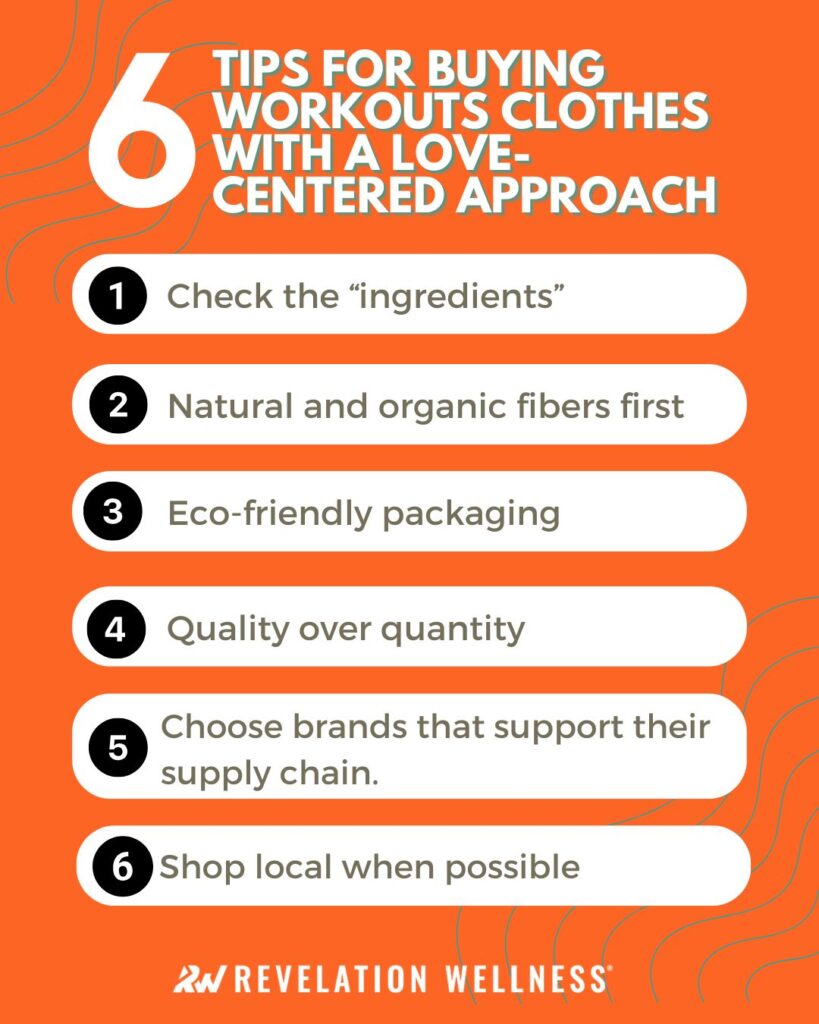
9 Ethical/Sustainable Workouts Clothing Brands
The RW Store Commitment
The RW Store is taking strides towards better care for the planet and people.
We work with a local printer when possible, source sustainable apparel options, and have converted most of our packaging to biodegradable, reusable, or recyclable supplies.
We have also partnered with a small business with like-minded goals in faith and fitness.
By working together, we can cut down on production costs and waste and work together for the kingdom of God.

Lindsey Nauta is a designer by trade and an ongoing student of wellness by passion. When she’s not packaging RW merch, she’s chasing her littles, searching for the perfect GIF, or teaching trauma-informed yoga classes.
Wear Your Mission
Find Revelation Wellness-exclusive fitness gear, books, stickers, hats, instructor gear, and more.
Each piece is designed to help you live a healthy and whole life in Christ and love others well!



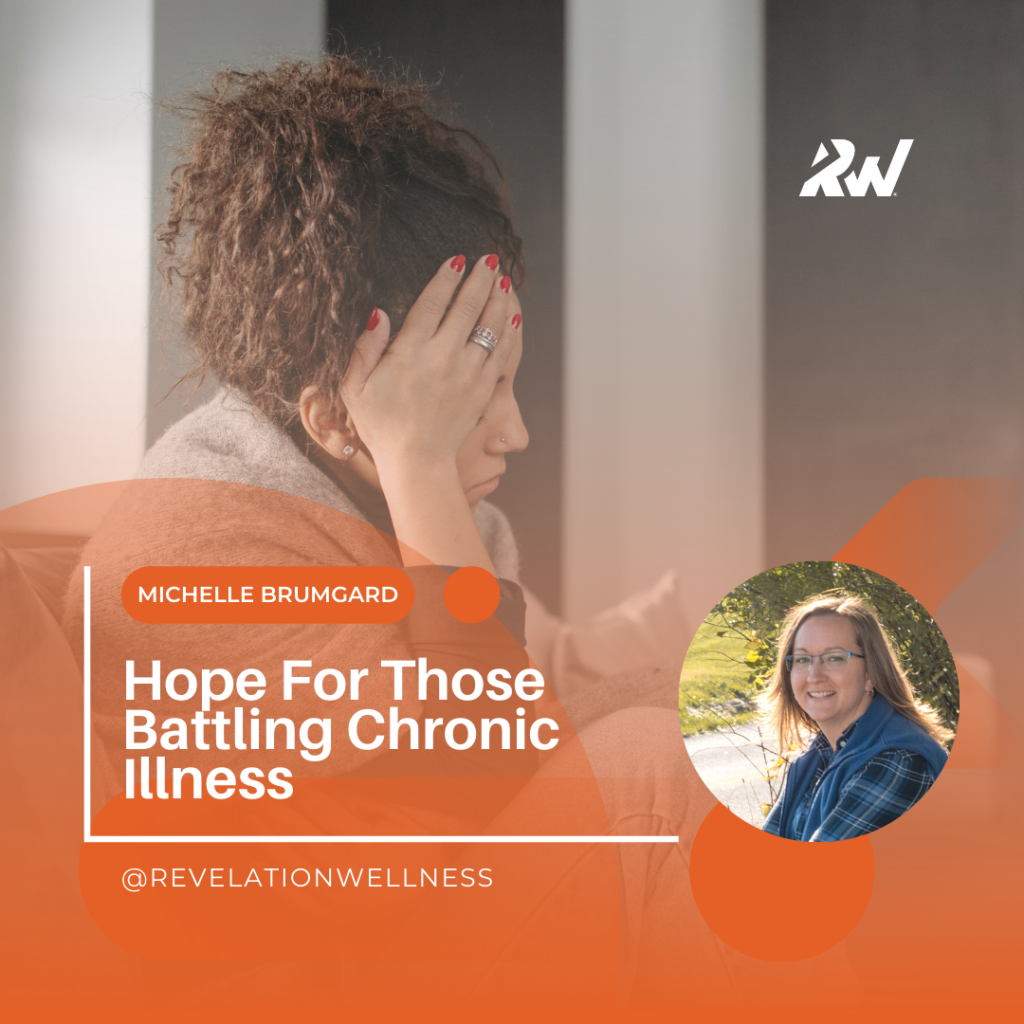

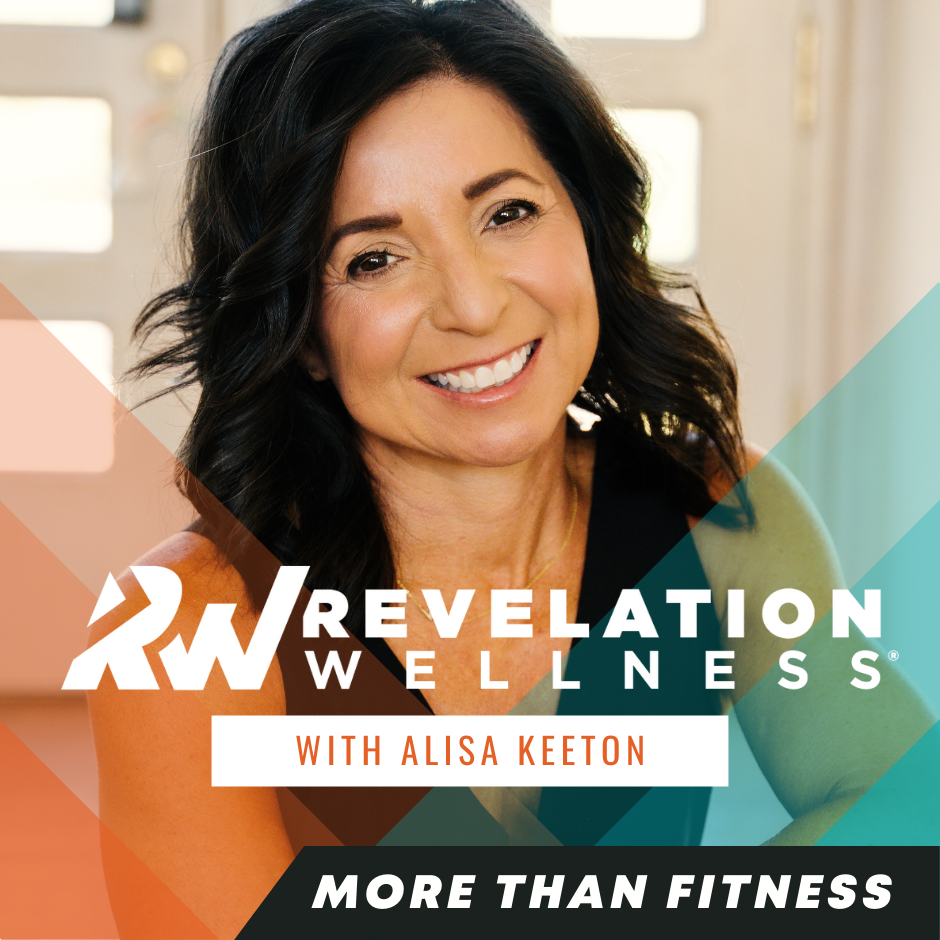

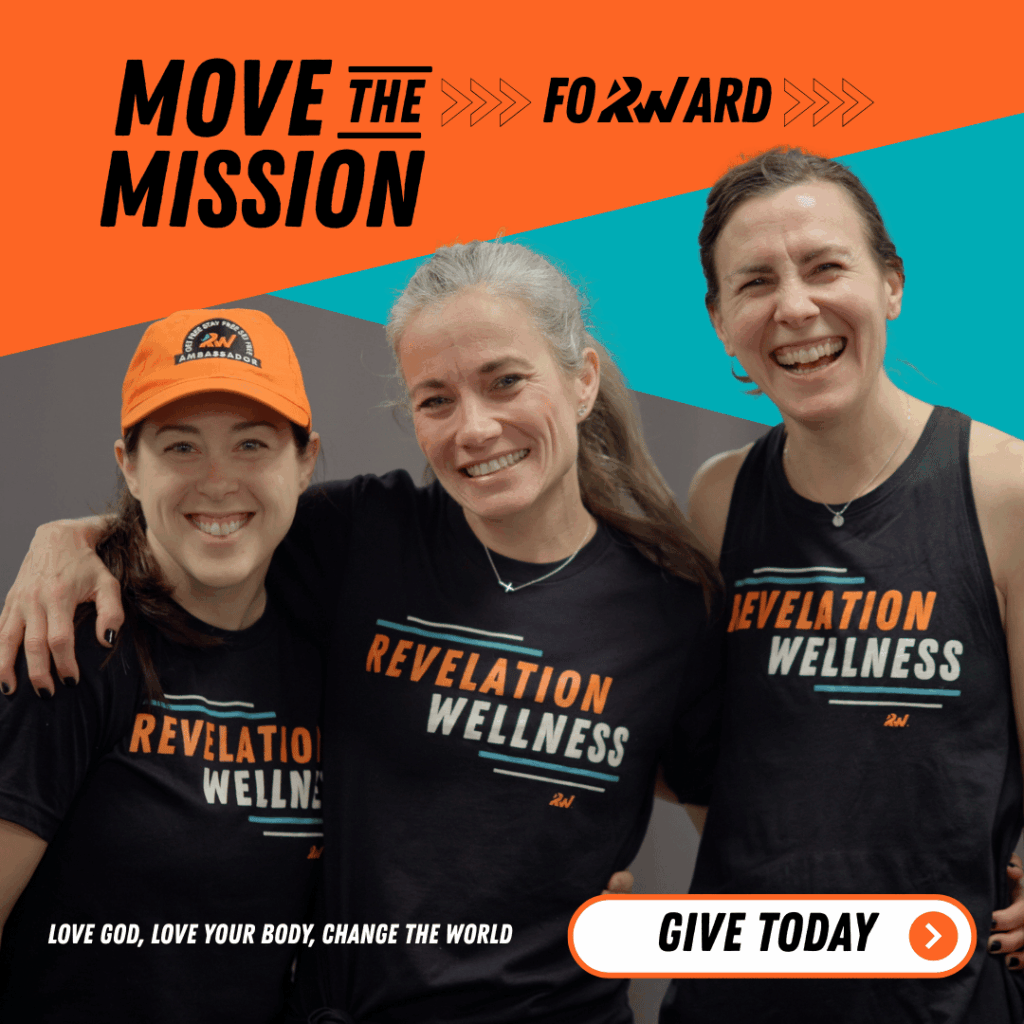








2 Responses
Thanks for taking these steps and writing about this, Lindsey. Redemption is not just about humanity – God is putting all of creation back in right order and we get to partner with him in ways like this!
Amen! He will restore all of creation! How amazing!